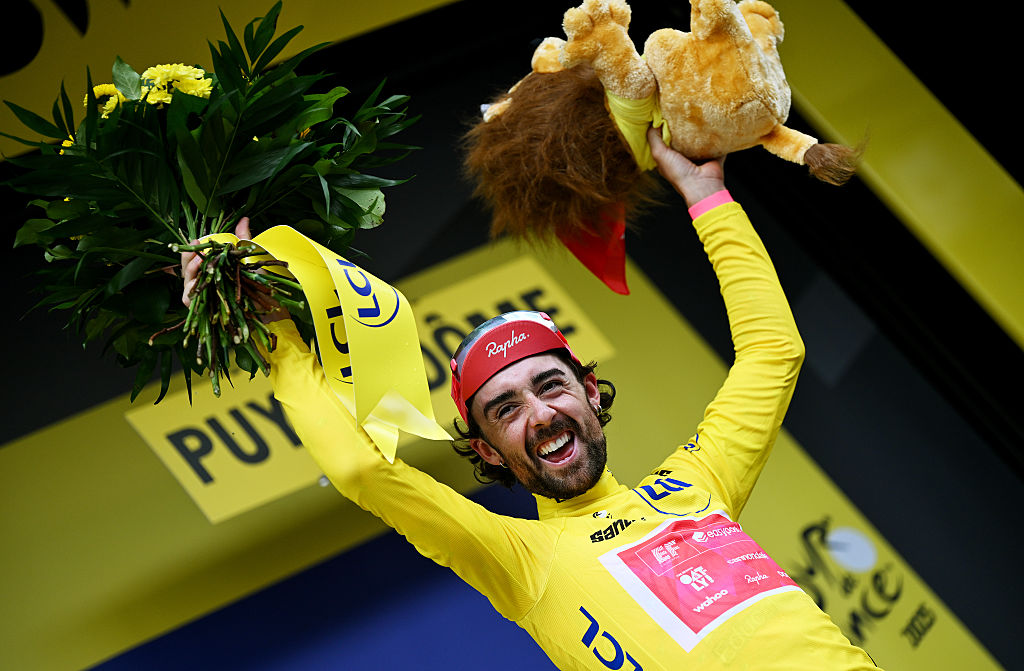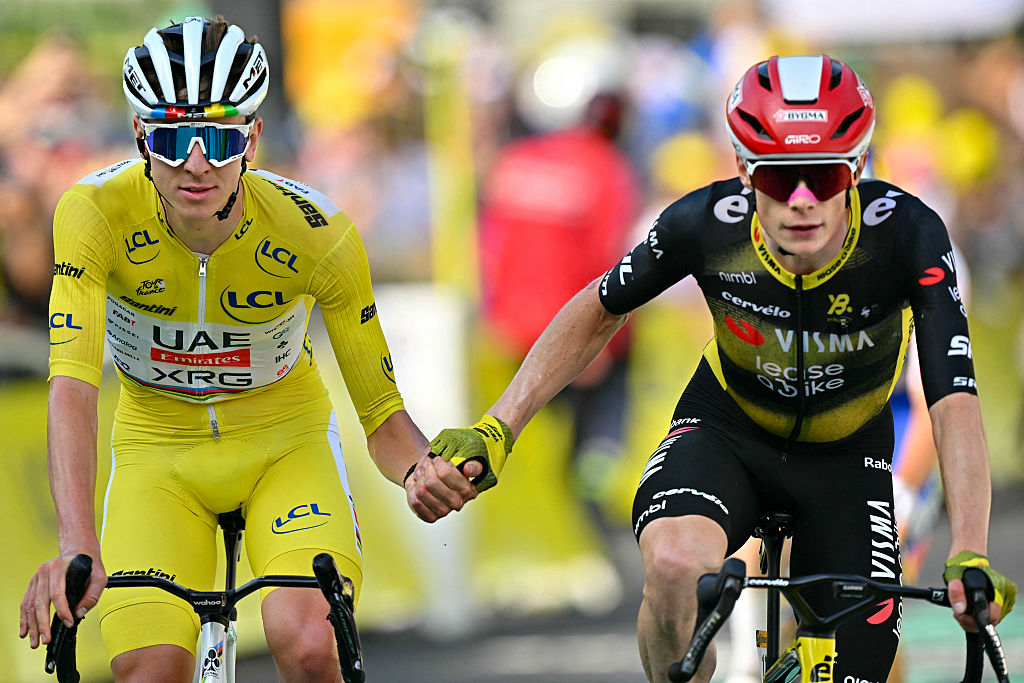Vuelta a España 2022 stage 20 preview - Evenepoel aims to avoid ambush in Sierras of Madrid
Last chance for Mas and Ayuso to take on maillot rojo
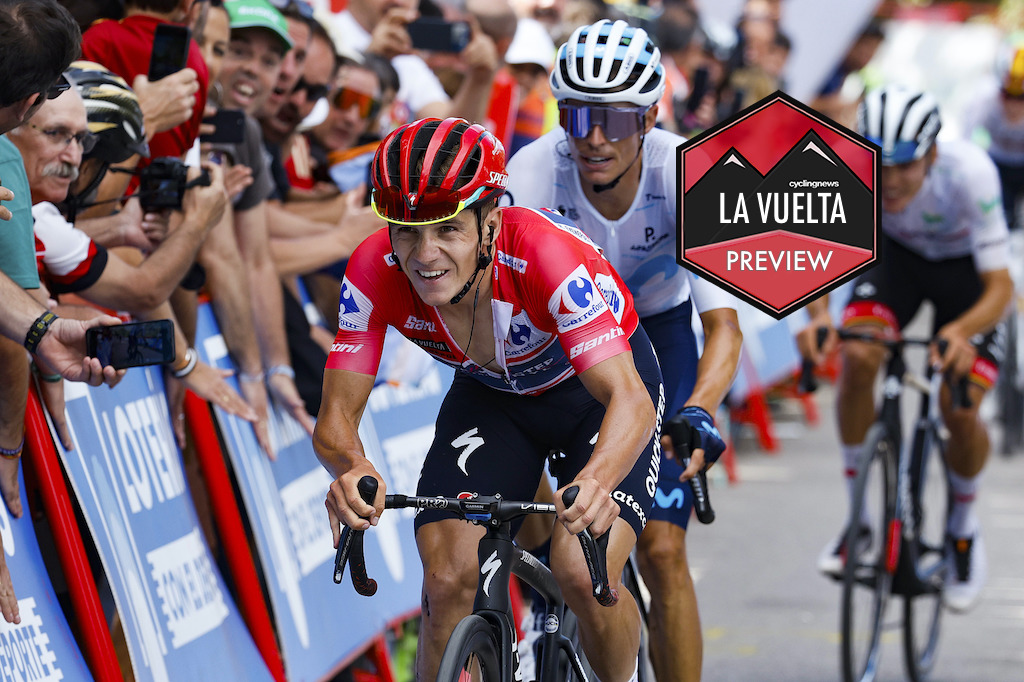
Stage 20: Moralzarzal - Puerto de Navacerrada
Date: Saturday, September 10, 2022
Distance: 181km
Stage timing: 12:45-17:30 CET
Stage type: Mountain
If Remco Evenepoel (QuickStep-AlphaVinyl) has any mental energy left over on the last crunch stage of this year’s Vuelta a España on Saturday, then some two kilometres from the summit of the Morcuera climb, the current race leader could spare a thought for Tom Dumoulin.
As the road rears briefly to 10% on the stony, sun-parched mountainside, he will reach the point where Fabio Aru finally managed to break Dumoulin’s grip on the maillot rojo of the 2015 Vuelta a España.
Seven years ago, as the last 40 kilometres unfolded in a near-identical finale to Saturday’s stage 20, Aru remorselessly opened up the time gap on Dumoulin that provided the Italian with the lone Grand Tour victory of his career.
In the process, Aru also added another few pages to an already sizable chapter in Vuelta history – one which recounts how, time and again, the climbs of the sierras of Madrid, with names as emblematic as Navacerrada, Cotos and the Morcuera, have somehow managed to turn the GC battle on its head within sight of the finish.
All of which adds indirectly to the anticipation and expectation surrounding the final mountain stage of the 2022 Vuelta over those very same climbs, at a moment where Evenepoel is on the point of making history with Belgium’s first Grand Tour win in over 40 years. But in the sierras of Madrid, the history of the Vuelta is not – at least not yet – in Evenepoel’s favour.
The most famous case of last-minute switches of fortune in the sierras of Madrid is not Aru, who was only six seconds adrift of Dumoulin before the day he tore the race apart, but that of Philippa York in the dying days of the 1985 Vuelta. On that occasion, in nearly 70 kilometres and after attacking on the descent of Navacerrada, Pedro Delgado and breakaway companion Pepe Recio overturned a time gap of over six minutes that enabled Delgado to wrench the overall from York’s grasp.
The more scurrilous accounts of how Delgado overturned such a colossal gap contain everything from the race radio mysteriously going on the blink and York having no idea what was going on, to railway level crossings on the route with lowered barriers but no train ever appearing which prevented the Peugeot team from regaining contact to help chase down the break.
Other explanations include how the dense fog and poor weather conditions made communications difficult, not to mention local media demands for a ‘Spanish Armada’ to sink the Scottish ‘guy with an earring’, as York was nicknamed in Spain at the time. That Delgado, born locally, knew the area from training like the back of his hand was also definitely relevant. York herself has pointed to the failure of Peugeot's director of the time to ally to help the leader’s depleted team reel in Delgado and Recio.
But regardless of how much truth there is in those stories, these climbs can be treacherous territory for any Vuelta leader, even one with prior knowledge of the terrain. Locally born Isidro Nozal found out as much in 2003 when he was beaten by Roberto Heras in the last weekend in the same sierras.
And as the last obstacle between Evenepoel and Belgium’s first Grand Tour win in over 40 years, their importance will once again be paramount.
It’s also interesting that the route, when compared to 2015’s second last stage incursion into the Madrid mountains, is virtually identical, right down the early first category ascent of Navacerreda, which provides a chance for a breakaway to form.
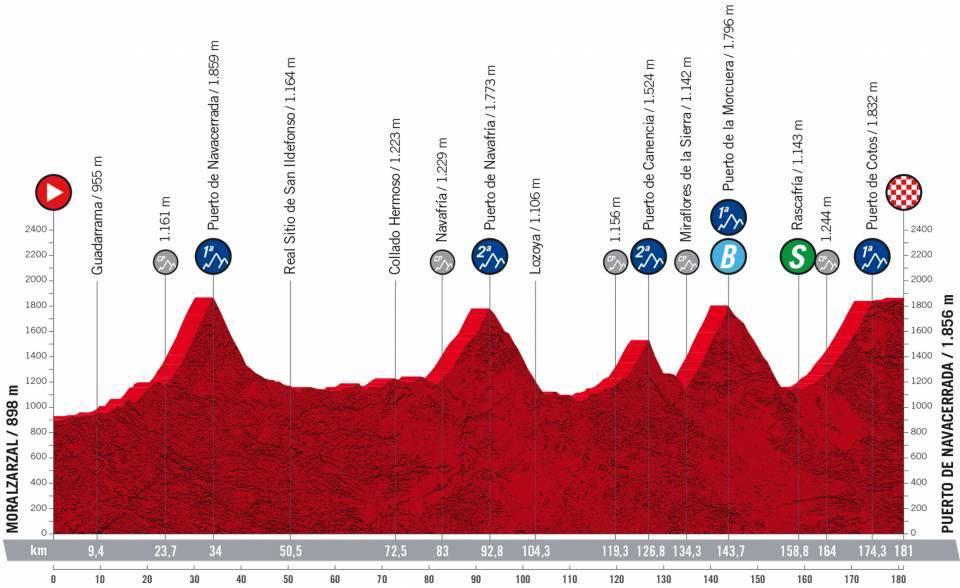
The most important element, though, is that the very hard Puerto de Canencia (now rated category 2, having been unclassified for no clear reason in 2015), and the category 1 Morcuera and the category 1 Cotos are all back on the menu in the same challenging order.
In 2015, the stage finished after a descent to a small mountain town of Cercedilla, while this time it finishes after seven kilometres of ridge road to the ski station of Navacerrada. But in practical terms, it makes little difference.
Exactly why these climbs can cause a Vuelta GC leadership to unravel at the last minute on multiple is certainly not because of their steepness. And almost all of the mountain roads in this area are well surfaced, two-lane affairs with no particularly dangerous ascents or descents, and, with such a long history in the Vuelta, are extremely well-known to almost all the peloton.
The challenge is more likely fourfold. Firstly, a stage with nearly 4,000 metres of climbing on the second last day of any Grand Tour is almost destined to hold a few surprises. Secondly, the last three classified climbs come in very quick succession, with almost no time for recovery between.
Thirdly, although none of the gradients are particularly hard, with both Morcuera and Cotos averaging around 7 percent, there are no false flats or mid-climb descents on either to ease the suffering. Fourthly, with Madrid just round the corner, the vast majority of the peloton has nothing to lose by going on the attack, making the stage very hard to control.
Evenepoel’s team, then, will be arguably more important than their leader’s own strength on Saturday. So far Ilan Van Wilder, Luis Vervake and Fausto Masnada have proved up to the task of controlling the race. But if Movistar, or perhaps UAE Team Emirates, opt for a mass move early on, it may be less straightforward than they would like.
It’s worth remembering that Aru's last-minute turnaround was a much more touch-and-go affair than it is often described. At one point after Morcuera, Dumoulin came within 11 seconds of regaining contact with Fabio Aru.
But devastating accelerations by Astana teammates Andrey Zeits and Luis Leon Sanchez, called back from the break to keep momentum on Aru’s side, proved crucial in re-opening the gap. Dumoulin, lacking such strong support, could not regain contact. After yet more hard driving by Astana teammates on the Cotos, Aru’s ambush paid off the richest of dividends.
Movistar and UAE Team Emirates, the teams most likely to try to dislodge Evenepoel at the last minute, will be telling themselves that his superiority on the most recent two summit finishes at Tentudia and El Piornal may not be as manifest, either, on the much harder climbs in Madrid. Although at this point in the game, anything but an Evenepoel/QuickStep-AlphaVinyl domination of the last stage would be a surprise.
The old cliche about a Grand Tour victory never being assured until the last metre always has more than a grain of truth about it. That truism is all the more pertinent on Saturday, given the long history of the sierras of Madrid and how they have changed previous Vueltas. Phillipa York, Isidro Nozal and Tom Dumoulin know that better than anybody.
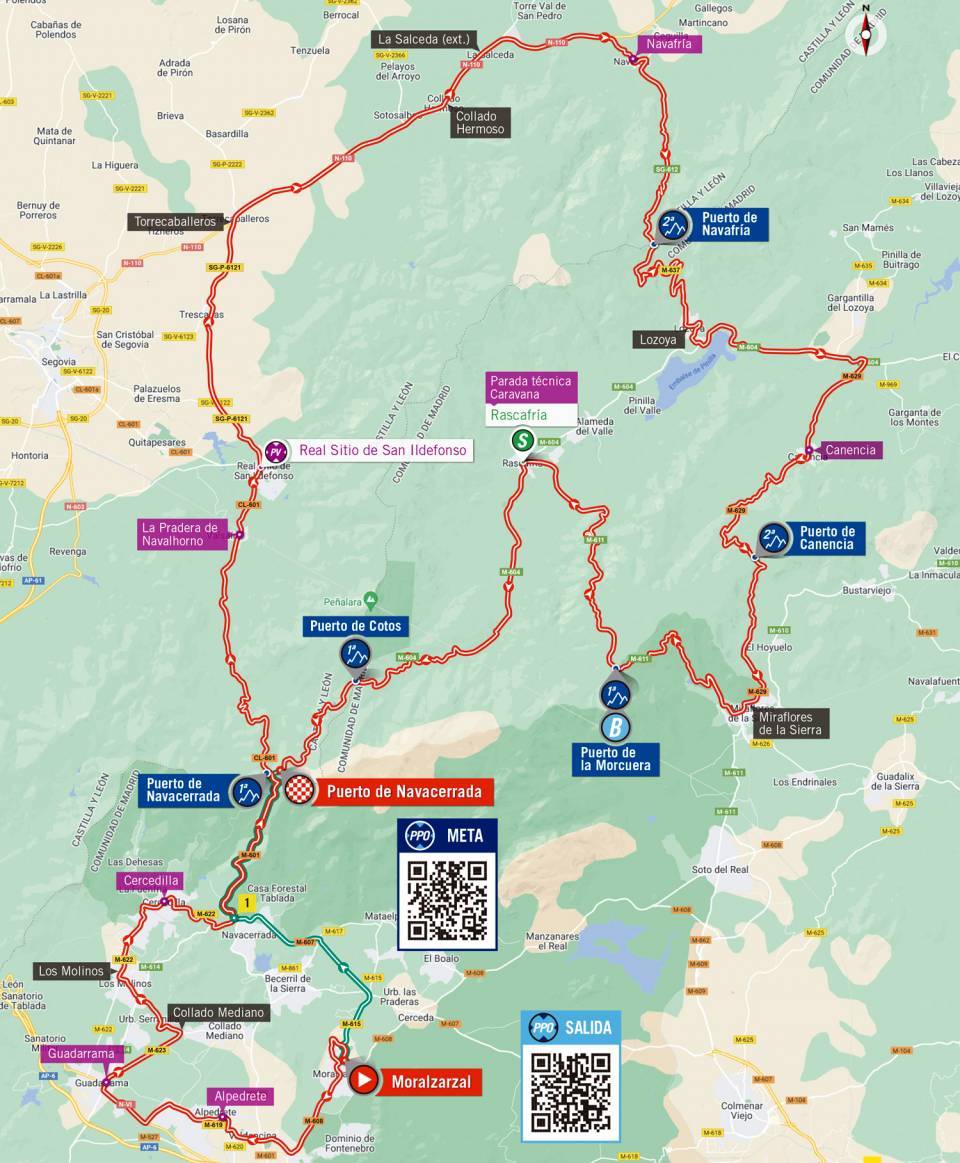
The latest race content, interviews, features, reviews and expert buying guides, direct to your inbox!
Alasdair Fotheringham has been reporting on cycling since 1991. He has covered every Tour de France since 1992 bar one, as well as numerous other bike races of all shapes and sizes, ranging from the Olympic Games in 2008 to the now sadly defunct Subida a Urkiola hill climb in Spain. As well as working for Cyclingnews, he has also written for The Independent, The Guardian, ProCycling, The Express and Reuters.
Latest on Cyclingnews
-
'It was tense' - Jonathan Vaughters on EF Education-EasyPost's emotions and strategy as Ben Healy takes Tour de France yellow jersey
American squad celebrates team performance that ended with cycling's biggest prize -
'We couldn't crack them just yet' – Jorgenson and Kuss try to isolate Tadej Pogačar as Visma flex team's strength over UAE at Tour de France
Jonas Vingegaard aided by American duo in fight to try take back time on world champion on road to Le Mont Dore -
Tour de France 2025: All the yellow cards, fines, and penalties
A slew of infractions on stage 10 with three yellow cards -
'They were a bit annoying with all the attacks' – Tadej Pogačar provoked by Visma into late surge after ceding Tour de France yellow jersey to breakaway
World champion isolated but up to every challenge thrown at him and UAE en route to Le Mont Dore on stage 10

